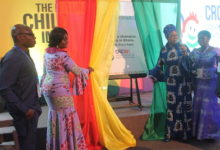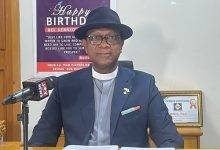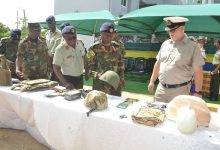Chiefs and traditional leaders must be made to play active roles in the management of water resources in the country, the Country Director of IRC, an NGO, Vida Duti has said.
According to her, chiefs and traditional leaders were custodians of the country’s lands and water resources and should be actively involved in the management of those resources.
Mrs Duti said this at a media dialogue on Water, Sanitation and Hygiene (WASH) and International Water Resource Management (IWRM) under the Watershed programme.
The objective of the programme was to create a platform for the media, civil society organisations and government to dialogue on WASH and IWRM.
The Watershed programme, a five-year strategic partnership between the Dutch Ministry of Foreign Affairs and IRC, Simavi, Wetlands International and Akvo, works with civil society organisations such as CONIWAS, Conservation Foundation, Ghana Watsan Journalists Network and Hope for Future Generations, to lobby and advocate improvements in the governance of WASH and water resource management.
Mrs Duti said the country’s cultural practices must be considered alongside scientific approaches in managing the country’s water resources.
She said Ghana may not achieve the Sustainable Development Goal Six which highlights on the delivery of hygiene and water services to promote the health of the citizens, if the continuous wanton destruction of the country’s water resources was not curbed.
She said the country’s water bodies were currently being polluted through the activities of illegal miners and that could also affect underground water sources.
“Our forefathers who were not educated, through myths and our cultural values were able to protect our water bodies for future generations, but today we who are educated are fast destroying our water bodies. We have to go back to our roots and adopt our values and heritage in our attempt to protect our water resources,” she lamented.
Mrs Duti called for the strict enforcement of the country’s laws to bring people who openly defecate and destroyed water resources to be prosecuted.
The IRC Country Director also stressed the need for more financial resources to be allocated to WASH and water resource management.
The Executive Secretary of CONIWAS, Basilia Nanbigne in her remarks said WASH and WRM were the least issues talked about in the country.
She said the government, civil society organisations and the media needed to highlight more on WASH and WRM issues.
The Executive Director of CONIWAS said issues of WASH and WRM were critical to wellbeing of the citizens and the country’s development.
Dr Mawuli Lumor of the Water Resources Commission in his submission said inadequate staff and finance remained some of the challenges facing the Commission.
He said the Commission could not embark on continuous and effective monitoring of the country’s resources due to its inadequate staff capacity.
Dr Lumor said the Commission depended on donor funding to finance some of its activities, stressing that the Commission could be able to establish basin boards to manage the various water bodies throughout the country through the support of European Union and other partners.
By Kingsley Asare







